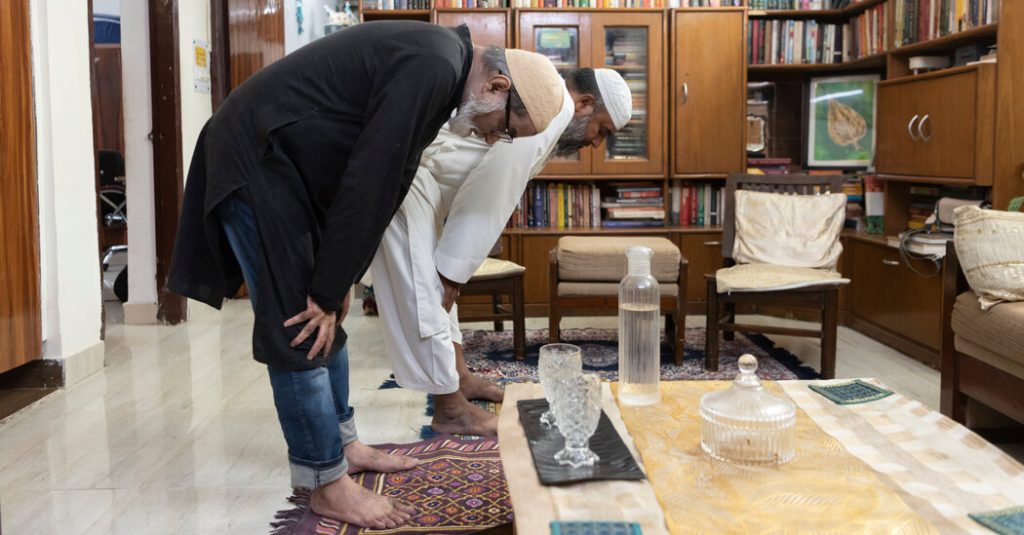Mr. Ziya Us Salam, a writer in India, finds himself living a lonely and marginalized life as a Muslim in a largely Hindu-first country. He and his family face constant ethnic profiling and discrimination, which has caused a strain on their daily lives. Despite the difficulties, Mr. Salam holds on to the hope that India is going through a passing phase and that the secular fabric of the country can be restored in the future. He reflects on his memories of growing up in a mixed neighborhood in Delhi and maintains optimism that India can overcome the current challenges.
Since Prime Minister Narendra Modi came to power in 2014, there has been a rise in Hindu nationalism which has led to increased discrimination against Muslims in India. Right-wing organizations have exploited the power around Mr. Modi to reshape Indian society, resulting in sectarian clashes, vigilante violence, and discrimination against Muslims. The atmosphere of Islamophobia has deeply affected Mr. Salam, who now focuses his writings on the plight of Muslims in India and the growing challenges they face. Despite the current situation, he clings to the hope that India will eventually return to its former state of coexistence.
In contrast to Mr. Salam’s experiences in Delhi, the state of Tamil Nadu in southern India presents a different picture. Tamil Nadu has been resistant to the rise of Hindu nationalism and is focused on secularism and economic well-being. Jan Mohammed, a resident of Chennai, describes a harmonious relationship between communities in the state, where neighbors join in each other’s religious celebrations and offer support. The state is known for its focus on education and economic success, and families like Mr. Mohammed’s thrive in this environment, with overachieving daughters pursuing higher education and career growth.
Mr. Salam’s memories of growing up in a mixed neighborhood and the warmth of relationships between different communities stand in stark contrast to the current climate of prejudice and discrimination he faces in Delhi. He recalls a friend and former editor whose friendship of 26 years was soured by anti-Muslim sentiments and misinformation shared via WhatsApp messages. The breaking point came when the friend expressed joy at the election of a Hindu nationalist leader, leading Mr. Salam to sever ties with him. The incident reflects the deep divide in Indian society caused by the rise of Hindu nationalism under Prime Minister Modi.
The impact of the discriminatory environment in India is evident in the struggles faced by Mr. Salam’s daughter, who has experienced mental health issues due to the pressures of being a Muslim in a hostile environment. The family debates whether to move away from the mixed Hindu-Muslim neighborhood in Noida to escape the discrimination they face. Despite his daughter’s inclination towards compromise, Mr. Salam remains resistant and refuses to accept the discrimination as a norm. His deep-seated belief in coexistence and secularism keeps him hopeful for a future where India can restore its diversity and harmony, despite the current challenges faced by Muslims in the country.
The contrasting experiences of Muslims in Delhi and Tamil Nadu highlight the diversity of India and the challenges faced by minorities in a country grappling with rising Hindu nationalism. While Mr. Salam’s family in Delhi navigates discrimination and hostility, families in Tamil Nadu thrive in an environment of mutual respect and understanding among different communities. The stories of these families reflect the complex reality of India, where progress and regression coexist, and the struggle for a harmonious society continues amidst the divisive forces shaping the country’s political and social landscape.


